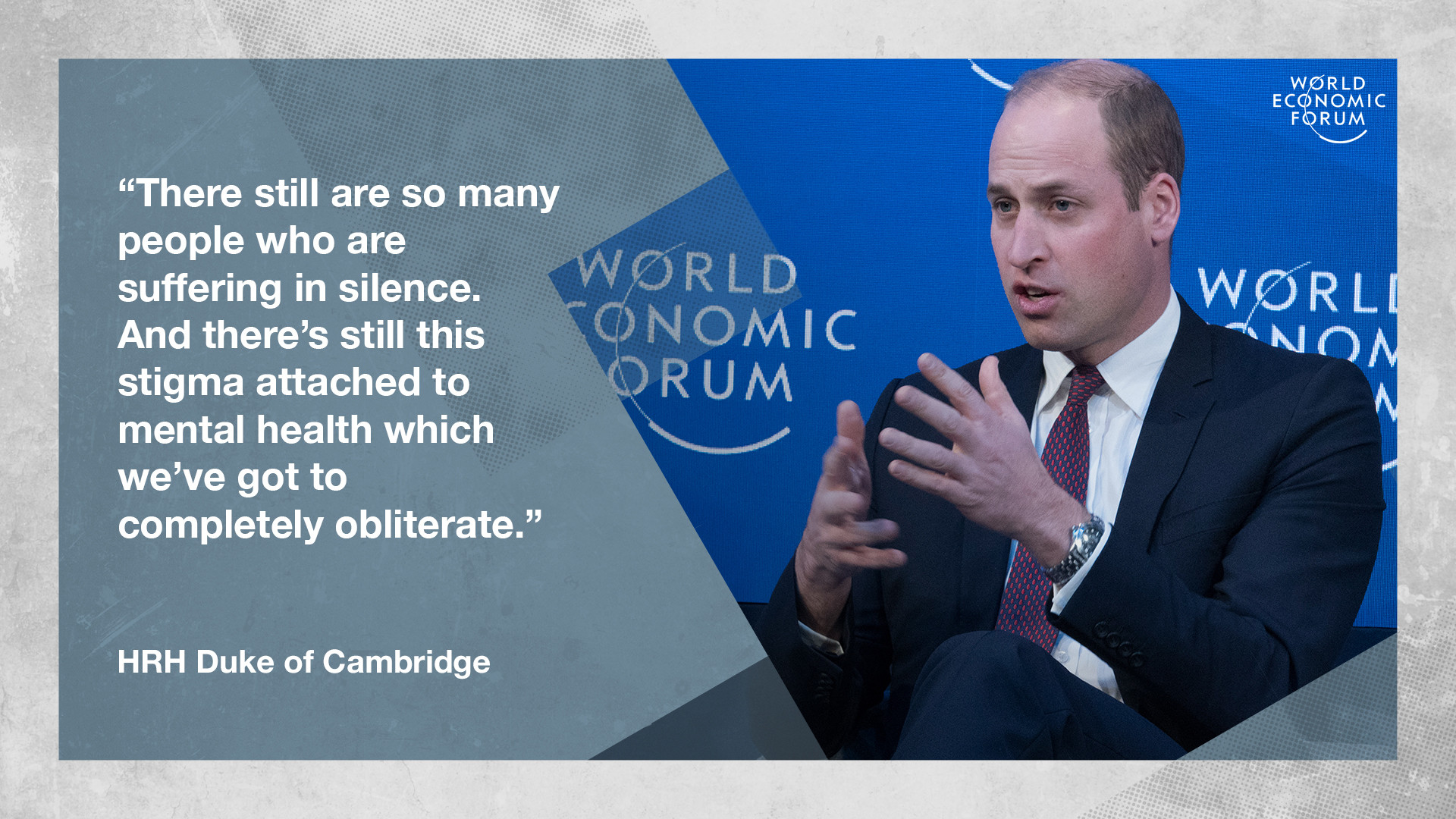World Mental Health Day: 5 powerful quotes on mental health

Former First Lady Michelle Obama has been a long-standing advocate of mental health. Image: REUTERS
- World Mental Health Day on 10 October helps raise awareness.
- COVID set to cause mental health crisis – and the virus has disrupted 93% of critical mental health services.
- Duke of Cambridge, Michelle Obama and Jacinda Ardern are advocates of mental health support.
A mental health crisis is looming as the COVID-19 pandemic pushes people into isolation, poverty and anxiety, experts say. And as demand for help increases, the crisis has affected critical mental health services in 93% of countries, data from the World Health Organization shows.
The WHO is calling for increased investment in the area in the wake of the crisis. And while this would have enormous benefits for people, it could deliver a big boost to economies too. Every $1 spent on treatment for anxiety and depression, for example, returns $5, the WHO says.
To mark World Mental Health Day on 10 October, here are five perspectives on mental health from high-profile advocates who want the world to talk more openly about it.
1. Prince William
“There still are so many people who are suffering in silence. And there’s still this stigma attached to mental health which we’ve got to completely obliterate.”
The Duke of Cambridge joined the Mental Health Matters panel at the World Economic Forum Annual Meeting in Davos in January 2019.

He spoke of his own experiences with mental health, and he was unequivocal in his views on the stigma around the issue – it must end, he said.
2. Michelle Obama
“Whether an illness affects your heart, your leg or your brain, it’s still an illness, and there should be no distinction.”
It’s time to “flip the script” on mental health in the United States, the then First Lady said at the Change Direction campaign in 2015.
“It’s time to tell everyone who’s dealing with a mental health issue that they’re not alone, and that getting support and treatment isn’t a sign of weakness, it’s a sign of strength,” she said.
What is the World Economic Forum doing about mental health?
3. Deepika Padukone
"There were days I wanted to give up, but hope everyday would push me to the next day. I kept saying, this is going to pass. So there is hope."
Indian actress Deepika Padukone told the story of her struggle with depression and anxiety at Davos this year. She said there is much stigma surrounding mental health in India, and also talked about the measures she takes to stop her depression returning.
"I have to take care of myself on a daily basis, what I eat, how much I sleep, exercise, mindfulness – to ensure I don’t go back to that dark space," she said.
4. Jacinda Ardern
“This is something that affects everyone, because either you have someone in your family who may be affected, a friend, or you yourself.”
New Zealand’s Prime Minister talked about transforming her country’s politics to focus on kindness, empathy and well-being at Davos in 2019. “We need to address the societal well-being of our nation, not just the economic well-being,” she said.
New Zealand’s government unveiled its plan a few months later – and it included funding for mental health services, child poverty and measures to tackle violence within families.
5. Tedros Adhanom Ghebreyesus
“Good mental health is absolutely fundamental to overall health and well-being.”
The WHO Director-General has been a fixture in news reports throughout 2020 as the organization leads the global fight against COVID-19.
This World Mental Health Day, the WHO is calling for increased investment in mental health – a sector it says is “chronically underfunded” – at all levels of society, from individuals to businesses and countries.
“COVID-19 has interrupted essential mental health services around the world just when they’re needed most,” Dr Tedros said. “World leaders must move fast and decisively to invest more in life-saving mental health programmes – during the pandemic and beyond.”
Don't miss any update on this topic
Create a free account and access your personalized content collection with our latest publications and analyses.
License and Republishing
World Economic Forum articles may be republished in accordance with the Creative Commons Attribution-NonCommercial-NoDerivatives 4.0 International Public License, and in accordance with our Terms of Use.
The views expressed in this article are those of the author alone and not the World Economic Forum.
Stay up to date:
Mental Health
Forum Stories newsletter
Bringing you weekly curated insights and analysis on the global issues that matter.
More on Wellbeing and Mental HealthSee all
Dylan Reim
October 29, 2025






